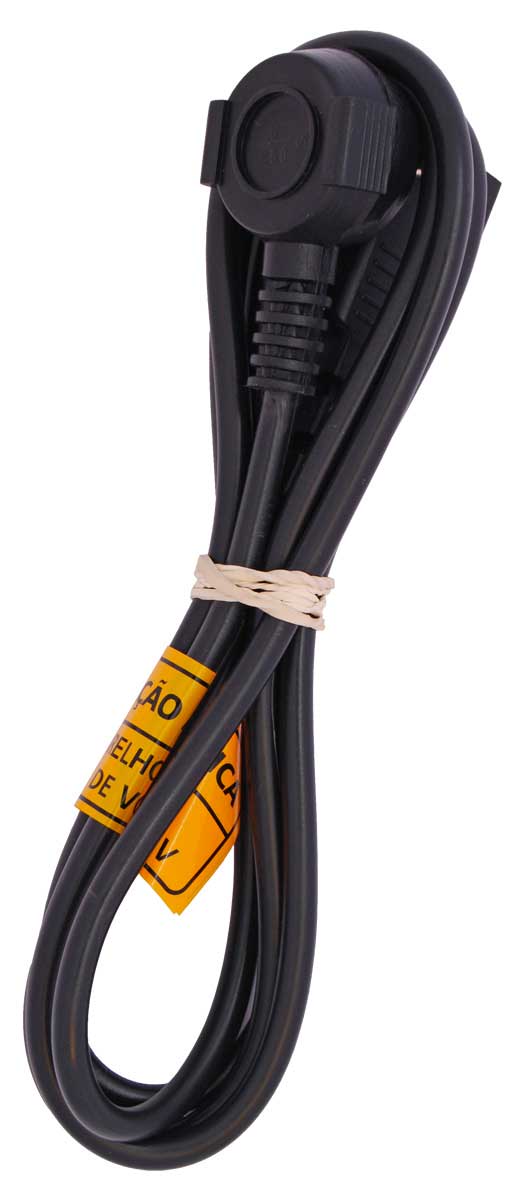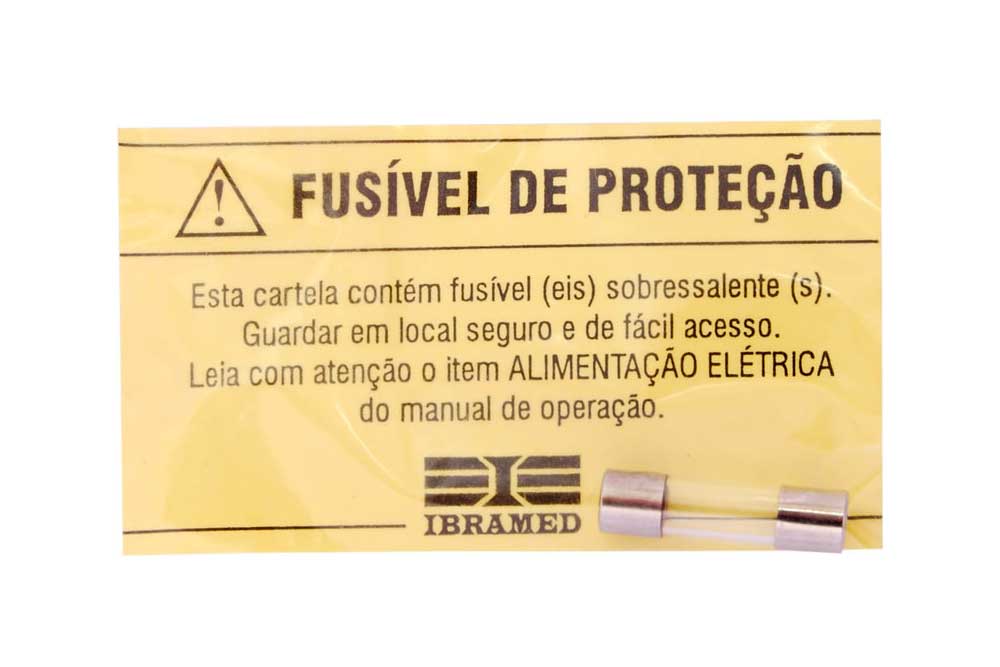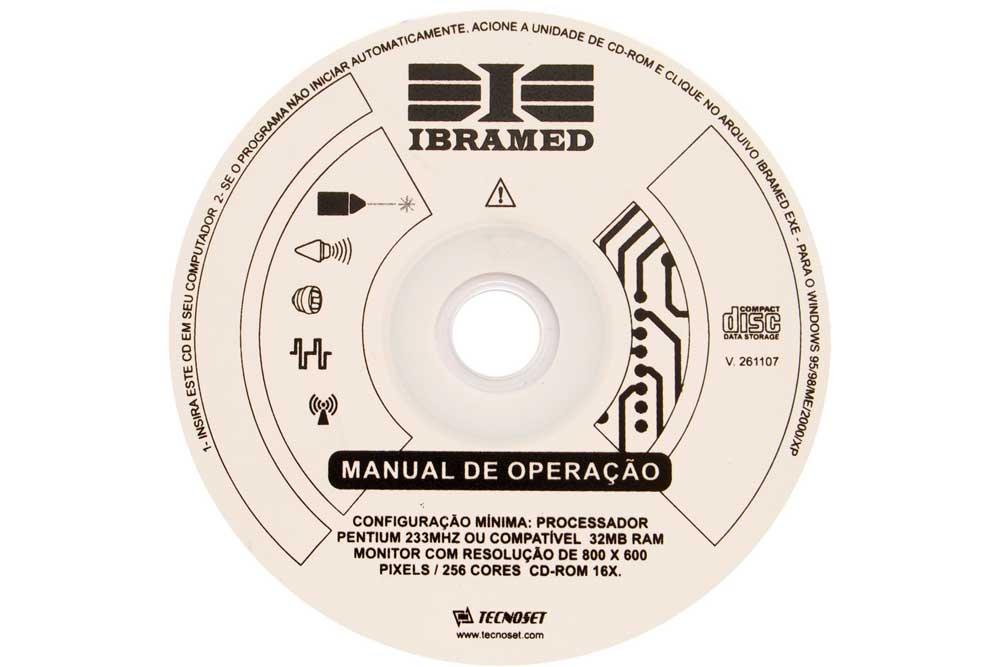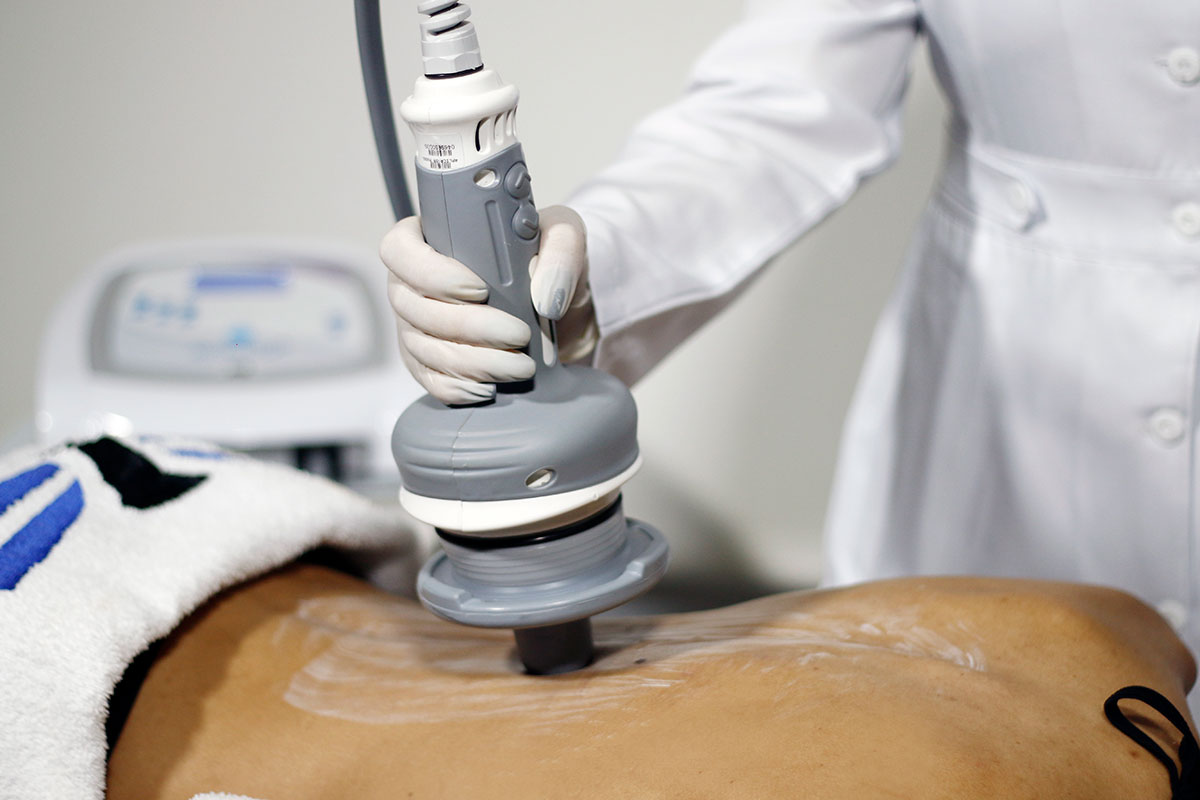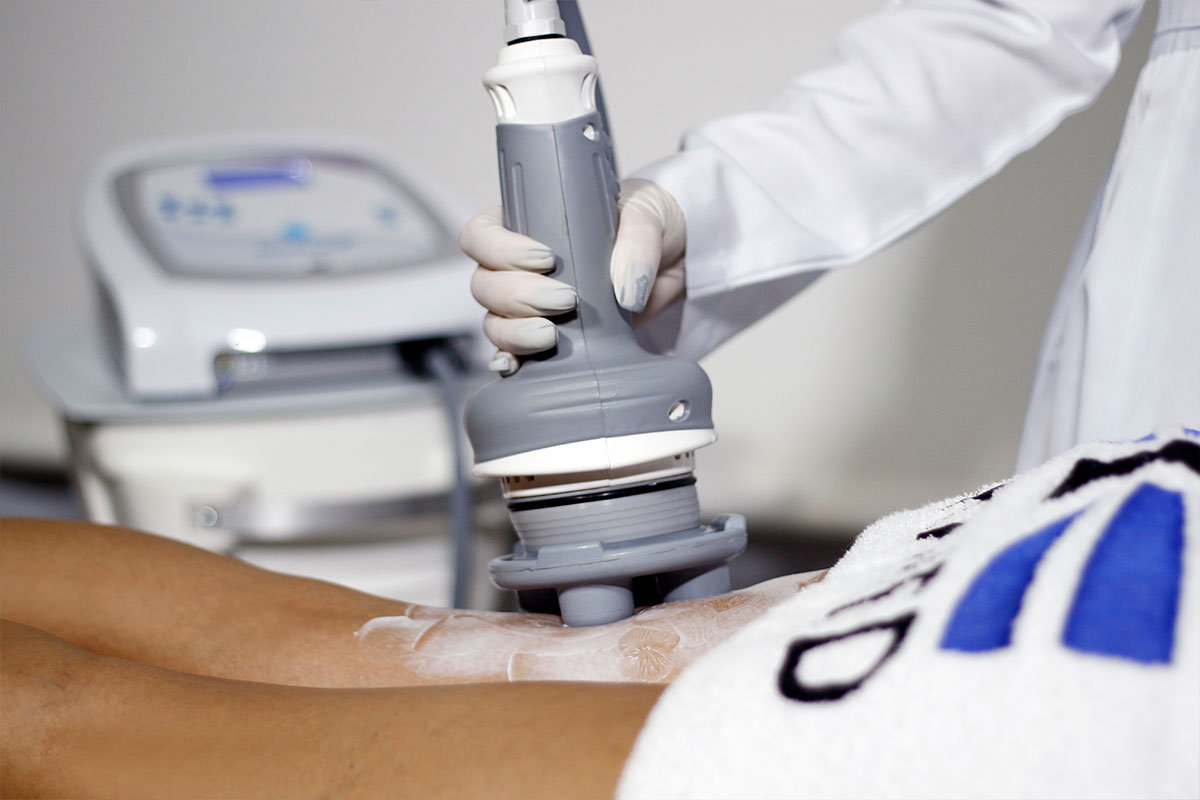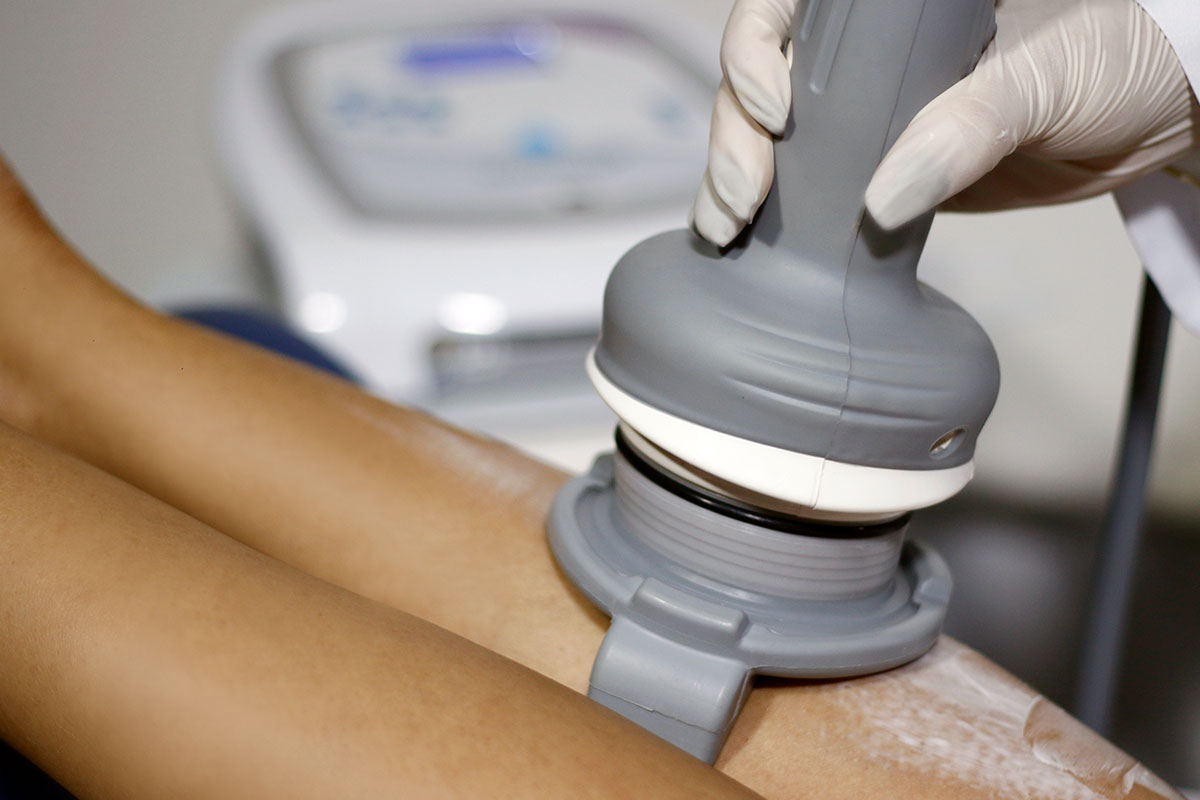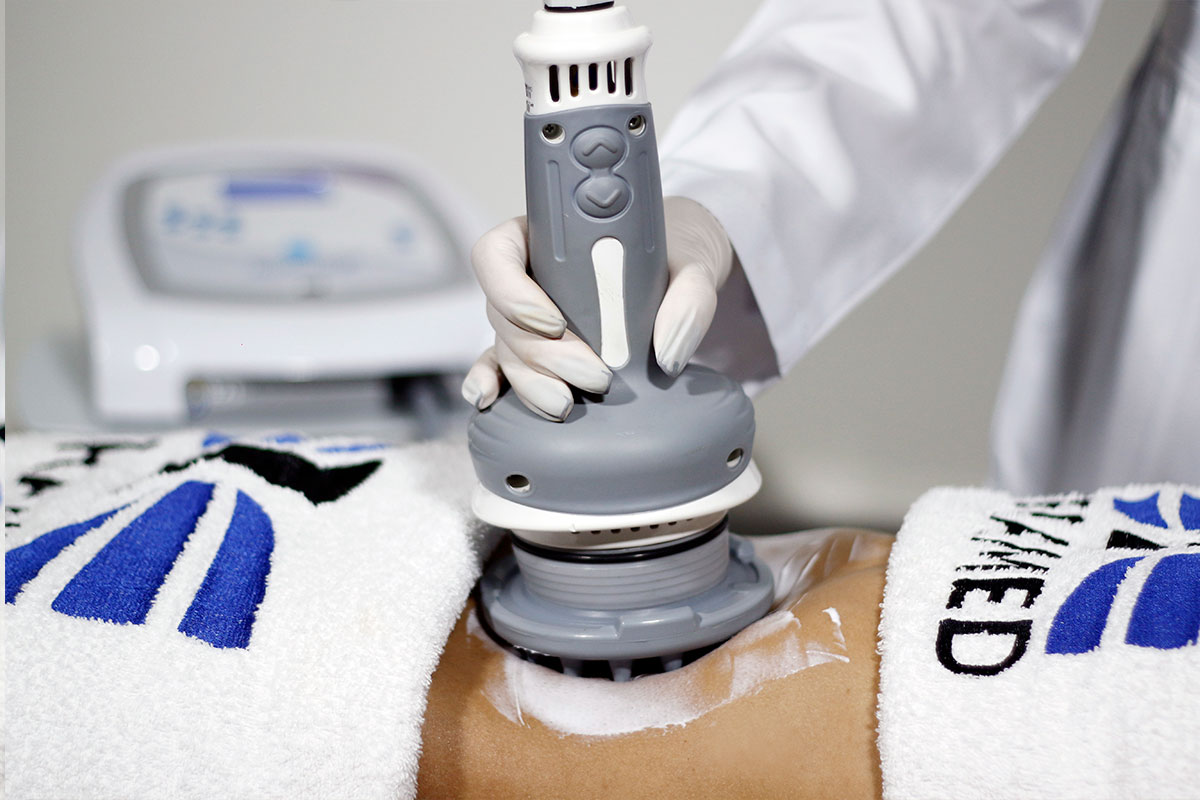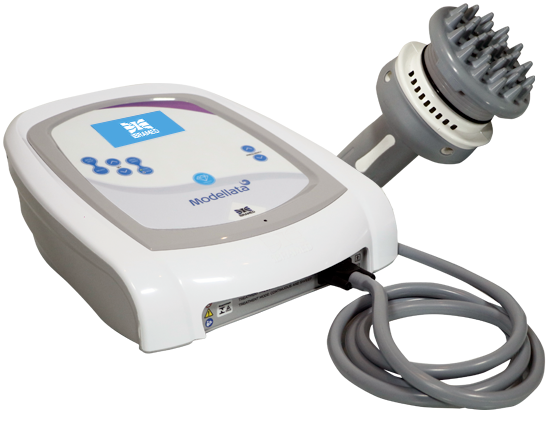
Modellata
- Vibro-Oscillatory therapy
- Ergonomic Applicator w/ lightweight cable
- Soft Touch Display
- Continuous mode and SWEEP mode
- 04 different tips
- 09 evidenced protocols in aesthetics
- High Frequency: up to 60 cps
- Easy-to-use
The equipment
MODELLATA is an equipment that promotes a vibro-oscillatory therapy that combines vertical and parallel forces to execute a deep mobilization in the tissues (skin, subcutaneous tissue and muscles) allowing treatment in the rehabilitation zone. Beyond the therapeutic effect of vibro-oscillatory and the tissue impact, the equipment has static magnets integrated into the tips to complete the therapy MODELLATA.
The equipment is for use only under the prescription and supervision of a licensed professional.

Technical features
Eletric description
- Input: 100 – 240 V ~ 50/60 Hz
- Input power 250 VA
- Electric class: CLASS II
Specifications of therapeutic modalities
Frequency: 10 – 60 cycles per second
Continuous mode and sweep mode
Continuous Mode with option of adjustment of frequency as follows:
Frequency of 10 to 60 cps, with steps of 5 cps.Sweep Mode with ramps and option of adjustment of frequency as follows:
Rise Time (s) from 1 to 120 s ±10%;
High Time (s) from 1 to 240 s ±10%;
High Freq. (cps) from 15 to 60 cps ±10%;
Decay Time (s) from 1 to 120 s ±10%;
Low Time (s) from 1 to 240 s ±10%;
Low Freq. (cps) from 10 to 55 cps ±10%.Treatment Duration: 1 – 60 minutes
Applicator
Modellata has an ergonomic applicator with lightweight cable, providing more comfort to the professional. In addition, the applicator has frequency intensity control through buttons that allow you to increase or decrease the frequency during treatment, without the need of reprograming the equipment screen.

Tip types
Modellata has 04 tips, which should be used according to the therapeutic purpose. They are as follows:
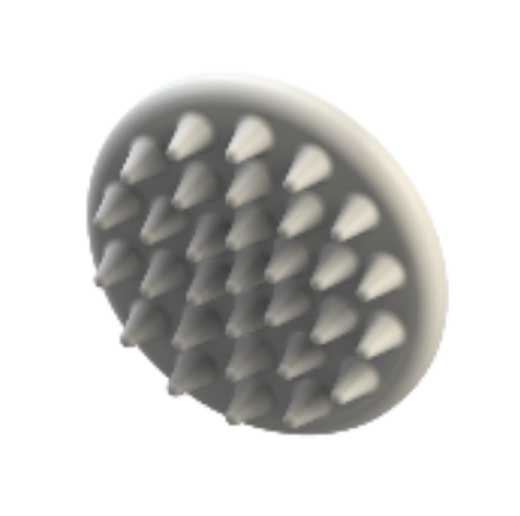
“Multipoint” Tips
Can be used to treat:
- Temporary reduction of cellulite appearance;
- Body shaping;
- Temporary improvement of local blood circulation;
- Symptomatic relief of muscle pain.
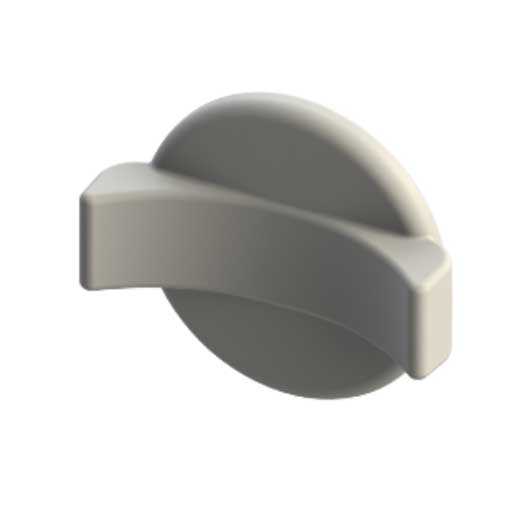
“Concave” Tips
Can be used to treat:
- Helps on the lymphatic drainage and edema.
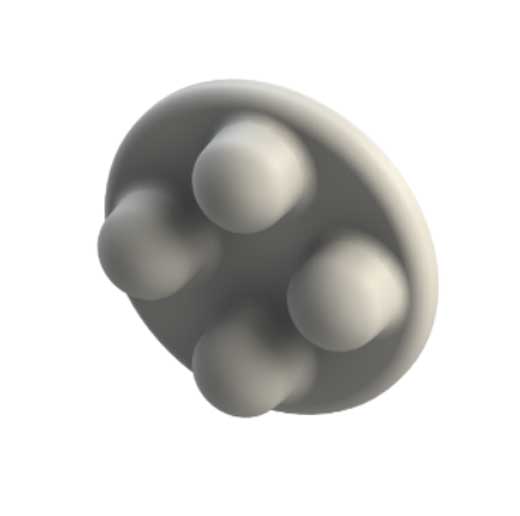
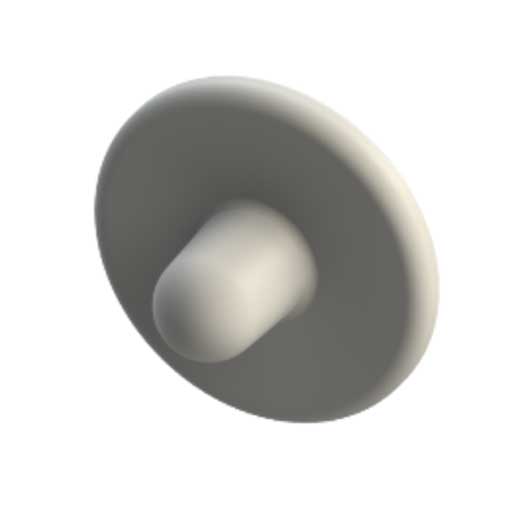
Four points and Central point Tip
Can be used to treat:
- Temporary improvement of local blood circulation;
- Symptomatic relief of muscle pain.
Note: Four points tip and central point tip have integrated static magnets that complete MODELLATA therapy.
Mechanisms of action and Physiological effects
Information about Modellata therapy
The technology foundation of Modellata has as its pillar mechanisms of orthostatic oscillation (vibrating platform), in which the increase of blood circulation is systemic. In the other hand, Modellata equipment consists of a non-invasive therapeutic oscillatory vibration force, its mechanical effect combining vertical and horizontal forces on adjacent tissues and structures without damage. This effect, in turn, alters vascular physiology, stimulating increased skin oxygenation, improving cell nutrition and skin tone, as well as eliminating metabolism sub products, in the reduction of cellulite appearance and in the adipose subcutaneous tissue distribution and improve of blood and lymph circulation.
Modellata helps increase of skin permeability, optimizes metabolic exchanges, induces peripheral and localized hyperemia (which increases oxygen and nutrient offer to tissues), has decongestant and fibrinolytic action and also promotes temporary relief of pain by stimulating mechanoreceptors of the skin, based on the mechanism of “Pain Gates Theory” by Melzack and Walsh (1965), and the release of endorphins.
In the musculature, it acts by facilitating the removal of lactate after exercise, minimizing late muscle pain, as well as causing relaxation and toning up the muscles. With Modellata, these effects are powered by magnetic therapy because the “Four Point” tip and the “Center Point” tip have static magnets. Magnetic therapy is an alternative medical practice that also increases blood circulation, favoring the oxygen and nutrients supply to the tissue through its magnetization effect, piezoelectric effect and metabolic effect.

Indications
Symptomatic relief of muscle pain;
Temporary improvement of local blood circulation;
Temporary reduction of cellulite appearance;
Body shaping;
Help on lymphatic drainage;
Muscular recovery after exercise.
Contraindications
- Under Continuity Solution.
- Under skin lesions, such as Dermatitis and Dermatosis.
- Under the abdomen during pregnancy.
- Capillary Frailty: presence of blood vessels, denominated capillaries, which break easily, causing petechiae and skin ecchymosis.
- Under large caliber varicose veins, for the risk of thrombus displacement.
Patients with acute deep venous thrombosis (DVT).
Under or next to cancerous lesions. - It has been used in patients with cardiac pacemaker or any other implanted electronic device.
- It has been used in patients with suspect of suffering from infectious and/ or diseases in which it is advisable, for medical purposes, to suppress heat or fever.
Adverse reactions
After the procedure, it is common that the patient presents Hyperemia (in some cases, a slight emaciation) and hypersensitivity.
Application techniques
For tissue stimulation, therapy must be vigorous with broad movements;
Apply the technique throughout the region until you achieve a uniform hyperemia;
As soon as the skin below the applicator shows hyperemia (reddish), change direction and apply in parallel to the treated area;
Persistence under the same local after hyperemia may cause petechiae and bruising;
Keep applicators adhered to the skin to prevent contact loss;
For relaxation techniques, use slow movements and low cycles;
The technique must be started with a frequency according to the patient’s tolerance level.
Preparing the patient for therapy
Examine the skin and clean the treated area;
Clean application accessories before and after each therapy session;
Use cream or vegetable oil to slide the tips;
For static application, the use of cream or vegetable oil is optional;
After the procedure, it is common for the patient to have hyperemia (in some cases, slight swelling) and hypersensitivity.
Accessories
